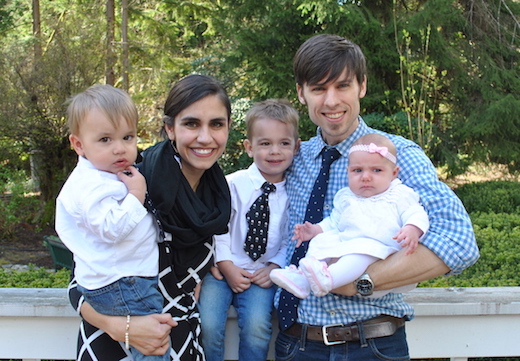2016
Women’s Discipleship Day: What to Expect
Discipleship, Event, Women's Retreat | by Laura West
Hey ladies,
I’m really looking forward to spending Saturday, May 14th, with y’all! As the date gets closer, I want to answer a few questions about the day and invite you to join us:
Q: I’m not sure what to expect. What will the day be like?
Our hope for the day is to grow together as sisters-in-Christ, equipped and encouraged for what God has set before us. Practically, this means the day has time set aside to meet and build relationships with other ladies, interactive sessions to hear about topics deeply relevant to us all, and space to take it all to Jesus. To give you an idea of what this will look like, a basic outline for the day is:
Breakfast and social
Worship and welcome
The Word and Our Worldview, Stacy Borkert
Roundtable Discussion
The Word and Our Relationships, Katie Krombein
Roundtable Discussion
Lunch
The Word and Our Witness, Tiffany Butler
Roundtable Discussion
Prayer and reflection
Panelist Session
Worship and close
Q: What will the speakers talk about?
The Word and Our Worldview (Colossians 3:15-17)
What shapes our worldview? What influences our reactions and what do we do with our fears and struggles? We will be looking at Colossians 3:15-17 and how when we look at our lives through the lens of the Word of God, we can rest in the peace of Christ and worship God, with a spirit of thankfulness.
The Word and Our Relationships (Romans 12)
What does it mean to live sacrificially as part of the body of Christ? Who are you in Christ and how does your identity inform the way that you love, and how you live with others in the church? In our second session, we will look at Romans 12, and what it means to humbly participate in the life of other believers.
The Word and Our Witness (John 4:1-30,39-42)
What comes to mind when you think about sharing your faith with others? Does sharing your faith come easy to you or is it something you struggle with? During this session we will seek to demystify what it looks like to be a witness for Christ. We will consider the encounter between Jesus and the Samaritan women which subsequently compelled her to be a witness to others about Jesus that they in turn would “come and see” for themselves.
Q: What is included in the cost of registration?
Your registration helps us cover the costs of this mini-retreat, including breakfast, lunch and refreshments, as well parking validation and materials for the day. We’ll also be giving away two books to encourage and equip you.
Q: Can I bring my friends?
Yes! This day is for all ladies seeking after Jesus.
Q: What if I can’t afford the registration? What if I can’t find childcare? What if I don’t know anyone?
If you don’t have $35, we have scholarships available and would love to invite you to participate – register! If you can’t find childcare, we’d love to help you find help – email us! If you don’t know anyone, that’s perfect. You’ll know a ton of amazing ladies at the end of the day – register!
Q: I’m on the fence. Should I register?
It’s understandable that many would be unsure about what to expect and if they should make time. In short, come! What do you have to lose? What would really stop you from spending a day with other ladies, growing together, learning about God’s word, and trusting in Jesus?
Q: Okay, I’m in. What’s next?
Register online in advance! We’ll send an email reminder the week of the event with details for the day. Encourage ladies in your community to join you. Doors open at 8:30am and breakfast begins at 9am. Come prayed up, expectant and ready for God to move. Park in the lot next to the building (for free). Give Jesus your concerns for the day and embrace all that He has waiting for you. Meet someone new and be known. Participate in the sessions and reflect on what God is teaching you. Ask Him to reveal Himself to you afresh and be ready with thanksgiving when He does. Sing loud because God is with us.
Whether you’re registered, still considering, or unable to join that day, I’d encourage you to pray for this time – it’s going to be good, by God’s abounding grace. I hope to see you on May 14th!


